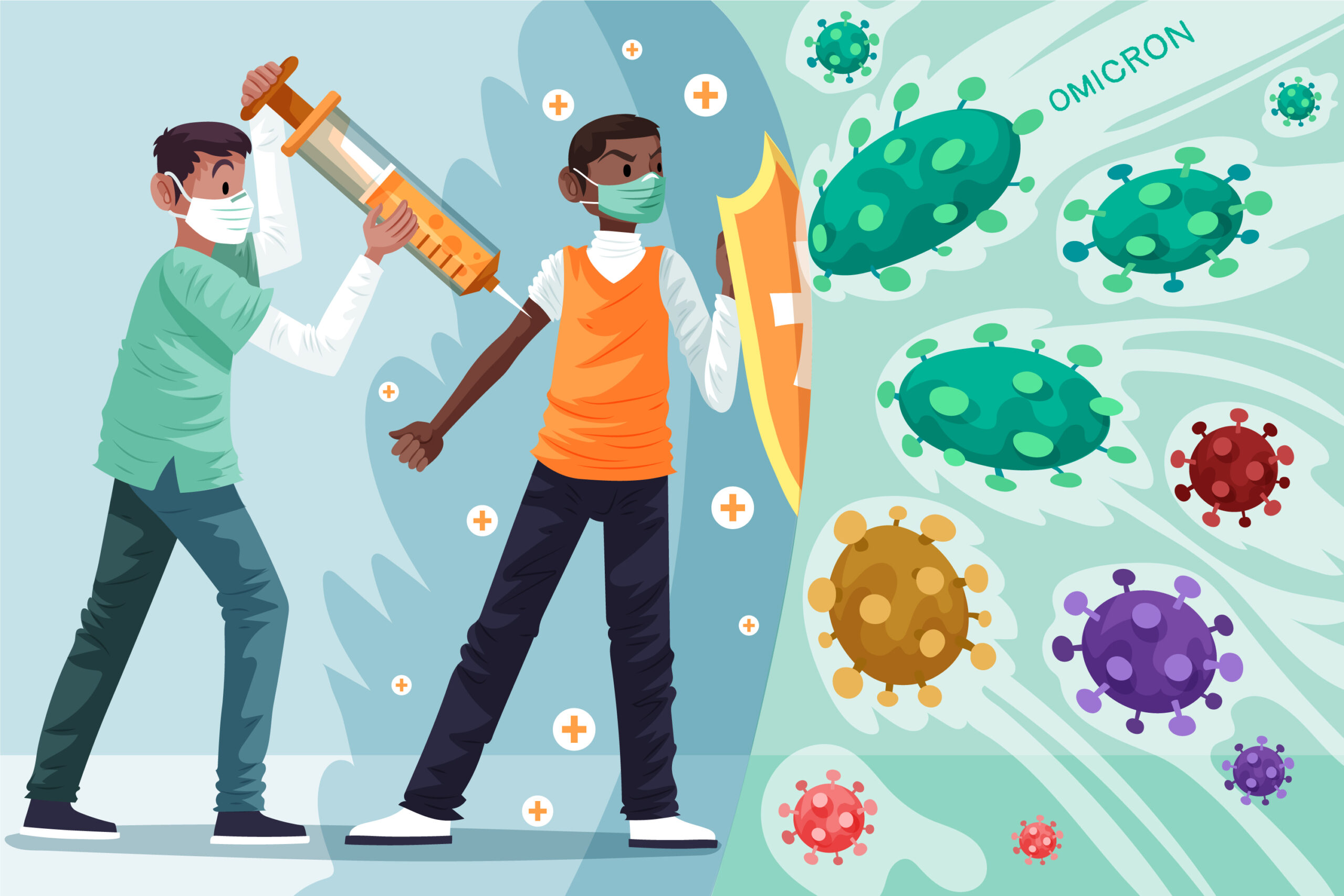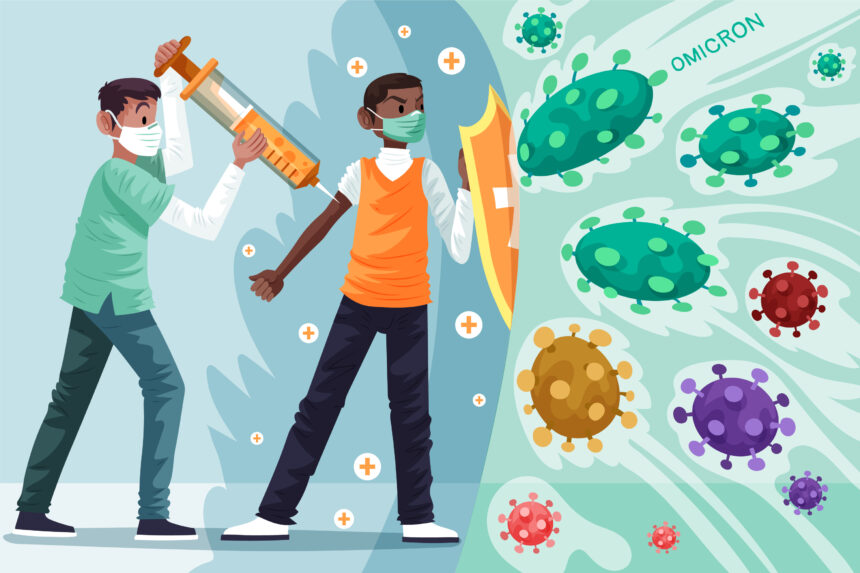
Pic Credit: FreePik
The Changing Face of the Covid-19 Pandemic
Over four years since the world first grappled with Covid-19, the virus remains a part of our daily lives—albeit in new and ever-changing forms. The most recent variant to dominate headlines is the JN1 Covid Variant. From Kerala to the wider world, JN1’s emergence is driving a fresh wave of concern among healthcare professionals and citizens alike.
Why Is the JN1 Variant Making News?
- Higher transmissibility: Early studies suggest the JN1 variant spreads more easily than previous strains.
- Vaccine concerns: There are ongoing investigations into whether current vaccines and boosters remain fully effective.
- Global surveillance: Governments and health bodies are ramping up sequencing and reporting to track the variant’s spread.
In this comprehensive guide, we’ll break down everything you need to know about the JN1 Covid Variant: its origins, symptoms, risks, and how to stay protected. We’ll link to authoritative sources so you can stay well-informed and safe.
Understanding the JN1 Covid Variant
The JN1 Covid Variant is one of the newest strains in the SARS-CoV-2 family, first identified in Kerala, India in late 2024. It is now under close watch by the World Health Organization (WHO) and India’s Ministry of Health and Family Welfare. As with previous Covid-19 variants, the JN1 variant’s genetic mutations are the subject of global scientific scrutiny.
For the latest technical data, you can visit the WHO SARS-CoV-2 Variants Tracking page.
What Makes JN1 Different?
All viruses evolve, but what sets the JN1 Covid Variant apart is a unique set of mutations—especially in the spike protein. This is the part of the virus that helps it attach to and enter human cells, so changes here can mean increased transmissibility or even changes in how our immune systems respond.
Key point: The JN1 variant contains spike protein mutations similar to those seen in other highly transmissible variants, but its full impact is still being studied.
Timeline: How JN1 Was Detected
- November 2024: Indian health authorities in Kerala reported an unusual spike in Covid-19 cases with genetic sequencing confirming the emergence of the JN1 variant.
- December 2024 – February 2025: Case numbers linked to JN1 increased in southern India, prompting contact tracing and targeted public health measures.
- March 2025 onwards: The JN1 variant was detected in other Indian states and several countries, leading to increased international monitoring and research collaboration.
You can track real-time variant data via GISAID’s Covid-19 variant dashboard.
Symptoms and Clinical Features: How Does JN1 Affect People?
While Covid-19 symptoms have remained broadly similar across most variants—fever, cough, fatigue, loss of taste or smell—JN1 brings some subtle differences that have been observed:
Common Symptoms
- Sore throat and nasal congestion
- Mild fever and fatigue
- Dry cough
- Headache
Less Common (But Noted) Symptoms
- Gastrointestinal issues (nausea, diarrhea)
- Muscle and joint pain
Notably, early reports from Kerala suggest that the majority of JN1 infections are either asymptomatic or mild in vaccinated individuals. However, vulnerable groups—elderly, immunocompromised, and those with comorbidities—should remain vigilant.
Read more: CDC – Symptoms of COVID-19
Why Is the JN1 Covid Variant a Concern?
Increased Transmissibility
Epidemiologists believe that JN1 may be up to 20% more transmissible than earlier Omicron sub-lineages. Its spike protein changes seem to enable faster human-to-human spread, especially in crowded indoor environments.
Vaccine Efficacy
Preliminary research shows existing vaccines still offer significant protection, particularly against severe disease and death. However, some breakthrough infections—cases where vaccinated individuals contract Covid-19—have been reported with JN1.
- Booster doses are being studied for enhanced protection.
- Studies are ongoing to determine whether a new generation of vaccines is needed.
Stay informed: WHO – Covid-19 Vaccines and Variants
Hospitalization and Healthcare Impact
Most JN1 cases are mild, but higher case numbers mean more hospitalizations in total—potentially straining healthcare systems, especially in areas with limited resources or high population density.
JN1 Variant in Kerala: Lessons and Precautions
Kerala’s Response
Kerala has often been at the forefront of India’s pandemic response, combining widespread testing, rigorous contact tracing, and public health messaging. With the emergence of the JN1 Covid Variant, Kerala’s government:
- Issued updated advisories for public gatherings
- Increased genomic sequencing of positive Covid-19 cases
- Reinforced vaccination campaigns (including boosters)
See updates from the Kerala Health Department.
What Other States and Countries Are Doing
Other Indian states, and countries where JN1 has been detected, are watching Kerala closely and adopting similar measures—especially increased testing and fast-tracked booster shot rollouts.
How Does JN1 Compare to Previous Covid Variants?
Delta, Omicron, and Now JN1
- Delta: Known for causing severe illness and high hospitalizations in 2021.
- Omicron: Spread rapidly but caused milder illness, especially in the vaccinated.
- JN1: Appears more transmissible than Omicron, with mostly mild symptoms, but with the potential to overwhelm healthcare resources if unchecked.
For a detailed comparison, check Johns Hopkins University’s Variant Tracker.
Mutational Profile
JN1’s spike protein mutations overlap with previous variants but introduce new changes that may allow partial escape from some vaccine-induced antibodies. This does not mean vaccines are ineffective—only that breakthrough cases are more likely as the virus evolves.
What Should You Do to Stay Safe from JN1?
1. Get Vaccinated and Stay Up-to-Date
Vaccines remain your best protection against severe disease, hospitalization, and death.
- Schedule your booster dose if eligible.
- Keep track of local advisories on vaccine clinics and new recommendations.
Official site for Covid-19 vaccines in India: CoWIN Portal
2. Practice Smart Masking
While many regions have relaxed mask mandates, experts still recommend wearing high-quality masks (N95, KN95) in:
- Crowded indoor spaces
- Hospitals and clinics
- Public transport
3. Maintain Good Hygiene
Simple precautions make a difference:
- Wash your hands frequently with soap and water.
- Use hand sanitizer with at least 60% alcohol if soap isn’t available.
- Avoid touching your face with unwashed hands.
4. Watch for Symptoms and Test When Needed
If you develop symptoms, self-isolate and get tested—especially if you have been in contact with a known case or recently traveled to an area with high case numbers.
- Find testing centers: Indian Council of Medical Research – Testing Labs
5. Follow Local Health Guidelines
Public health authorities regularly update guidance as new data emerges. Stay informed by checking reputable sources and your local government health department’s website.
Latest News and Research on JN1 (May 2025)
Ongoing Research
Scientists around the globe are publishing real-time updates on the JN1 Covid Variant. A few places to find the latest peer-reviewed data:
Media Coverage
- Times of India – JN1 Covid Variant Symptoms and Spread
- BBC News – Covid-19 in India: What to Know About the JN1 Variant (hypothetical May 2025 update)
WHO and Government Updates
How Does the Public Feel About JN1?
In Kerala and across India, the JN1 Covid Variant has understandably caused some anxiety. However, health experts emphasize that public awareness and cooperation are making a significant difference:
- Testing rates remain high, with most symptomatic cases being promptly detected.
- Vaccination uptake is steady, especially among at-risk groups.
- Community organizations and schools are supporting public health messaging.
Combating Misinformation
Misinformation about Covid-19 variants continues to circulate online. To separate fact from fiction:
- Trust official government updates and major health organizations.
- Be wary of viral messages or unverified claims on social media.
- Check facts via resources like WHO Mythbusters.
The Broader Impact: Healthcare, Economy, and Society
Impact on Healthcare
The rapid spread of the JN1 Covid Variant means even a small percentage of severe cases can translate into significant hospital admissions. Doctors in Kerala have reported increased admissions for respiratory issues, but hospitals remain equipped—thanks to lessons learned during earlier waves.
Economic and Social Effects
- Workplace guidelines: Many companies are reintroducing hybrid or remote work as a precaution.
- Travel: Some states are requiring proof of booster vaccination for interstate or international travel.
- Education: Schools are updating their health protocols, and parents are encouraged to monitor children for symptoms.
Psychological Well-Being
Covid fatigue is real. Experts recommend:
- Prioritizing mental health through community support and online counseling.
- Staying connected with family and friends—virtually, if needed.
- Maintaining routines that encourage exercise, sleep, and healthy eating.
If you’re struggling, WHO – Mental Health and Covid-19 offers guidance.
Frequently Asked Questions (FAQs) About the JN1 Covid Variant
Q: Are the symptoms of JN1 Covid Variant different from Omicron?
A: They are similar—mild fever, cough, and sore throat are most common, but JN1 seems to cause less loss of smell/taste.
Q: Do vaccines protect against JN1?
A: Yes, especially against severe outcomes. Boosters may offer added protection, but some breakthrough infections are possible.
Q: Where can I find the most up-to-date advice?
A: Always refer to the WHO or your local health authority for current recommendations.
Q: Should I be worried about a new lockdown?
A: As of May 2025, there are no national lockdowns, but local restrictions may be implemented if cases surge.
Navigating the JN1 Wave Together
The emergence of the JN1 Covid Variant is a timely reminder that the pandemic isn’t over, even if we’ve adapted to a “new normal.” With science moving fast and public health systems better prepared, there is every reason for optimism—provided we all remain vigilant and follow best practices.
By staying informed through trusted sources, keeping up with vaccines and boosters, and continuing to practice smart hygiene, we can limit the impact of the JN1 Covid Variant. Remember: your actions protect not just you, but your family and community as well.
Stay safe, stay informed, and support each other as we navigate the next phase of the Covid-19 journey & follow StellarBulletin for more updates.



